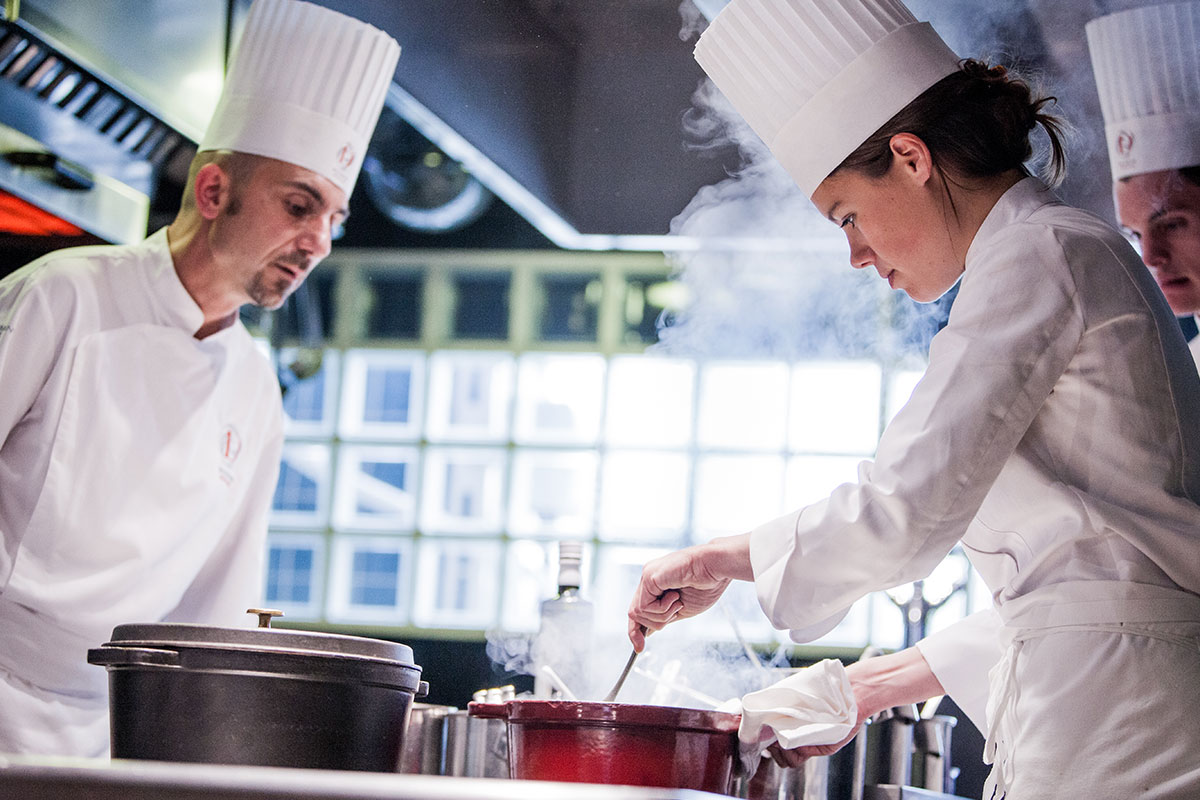French cuisine is often revered as the pinnacle of culinary excellence, influencing chefs and food enthusiasts around the globe. Its rich traditions, precise techniques, and elegant presentations have shaped how we think about food. Beyond the aesthetic and taste, French cuisine plays a crucial role in the education and career paths of aspiring chefs. Those who embark on a journey to master French cooking aren’t just learning to cook; they’re acquiring a deep understanding of the culinary arts that will serve them throughout their careers.
The allure of French cuisine among aspiring chefs lies in its ability to combine simplicity with sophistication. However, that isn’t the only reason why many people who want to take culinary short courses in Manila start with French cuisine. Here are a few more compelling reasons why many opt to start their culinary journeys with French cuisine:
Foundational Techniques
French cuisine is renowned for its emphasis on fundamental cooking techniques that form the backbone of culinary arts. From knife skills to sauce preparation, these techniques are often the first things taught in culinary schools. Mastering the five “mother sauces” (béchamel, velouté, espagnole, tomato, and hollandaise) is a rite of passage for any chef, providing the foundation for countless other dishes.
Additionally, French cooking places a strong emphasis on mise en place, a concept that means “everything in its place.” This approach to kitchen organization ensures efficiency, consistency, and a seamless cooking process. By learning these techniques early on, aspiring chefs build a solid foundation that they can apply to any cuisine or culinary challenge they encounter.
Structured Culinary Education
Many prestigious culinary schools around the world focus on French techniques and traditions, providing aspiring chefs with rigorous training that emphasizes discipline, precision, and creativity. Schools like École Ducasse have built their reputations on the strength of their French culinary programs. These institutions offer comprehensive training in French cuisine, from classical dishes to contemporary interpretations.
The structured education provided by these schools prepares chefs for the demanding environment of professional kitchens. By honing their skills in a French culinary program, chefs learn to work with precision and creativity, qualities that are essential for success in the culinary world. The discipline instilled through French culinary education ensures that chefs are well-equipped to handle the challenges and pressures of their careers.
For those in the Philippines, enrolling in a French cooking class in Manila can offer the same level of expertise and training found in these prestigious institutions. It provides a unique opportunity for local chefs to learn the fundamentals of French cuisine without having to travel abroad, making it an accessible option for many.
Universal Culinary Language
In professional kitchens around the world, French culinary terminology is widely recognized and used, creating a shared language among chefs. Terms like “sauté,” “julienne,” “roux,” and “mirepoix” are not just jargon; they are essential components of the culinary lexicon. This universal language allows chefs to communicate efficiently and effectively, regardless of their background or the cuisine they specialize in.
Aspiring chefs who master this terminology gain a significant advantage in their careers. It allows them to navigate professional kitchens with ease and enables them to work in diverse culinary settings. Whether they are preparing a traditional French dish or experimenting with fusion cuisine, the knowledge of French culinary terms provides a solid foundation that enhances their versatility and adaptability.
Global Culinary Impact
French cuisine has significantly influenced culinary practices around the world, making it a relevant and valuable area of study for chefs looking to understand global food trends and techniques. The principles of French cooking, such as the use of fresh, high-quality ingredients and the emphasis on balance and harmony in flavors, have permeated many other culinary traditions.
In countries like Japan, the United States, and even the Philippines, French culinary techniques have been integrated into local cuisines, resulting in unique and innovative dishes. Understanding this global impact is crucial for developing a well-rounded approach to cooking. By studying French cuisine, chefs gain insights into how different culinary traditions can be combined to create something new and exciting.
A strong foundation in French cooking, perhaps through a French culinary program in Manila, can open doors to a world of possibilities for aspiring chefs. It equips them with the skills and knowledge needed to excel in a competitive industry, whether they aspire to work in a Michelin-starred restaurant or start their own culinary venture.
Passion for Culinary Arts
The artistry and craftsmanship inherent in French cooking inspire many aspiring chefs. The pursuit of mastering French cuisine often ignites a lifelong passion for culinary arts. French cooking is not just about following recipes; it’s about understanding the nuances of flavor, texture, and presentation. It’s about pushing the boundaries of what’s possible in the kitchen and continually striving for perfection.
This passion is what drives many chefs to dedicate their lives to the culinary arts. By immersing themselves in French cuisine, they discover a deep sense of fulfillment and purpose. The challenges and rewards of mastering French cooking fuel their desire to learn more, experiment, and innovate.
Embarking on a journey into French cuisine is more than just learning to cook; it’s about embracing a rich culinary tradition that has shaped the global food landscape. For aspiring chefs, mastering French techniques provides a strong foundation that will serve them throughout their careers, offering them the skills, knowledge, and inspiration to excel in the culinary world.
If you’re passionate about cooking and want to take your skills to the next level, consider enrolling in a French culinary short course like Enderun Extension’s A Guide to French Cuisine the Ducasse Way. This unique culinary series helps you dive deep into the wonders of French cuisine alongside chefs from École Ducasse Manila, learning classic culinary techniques and authentic French recipes.

 menu
menu